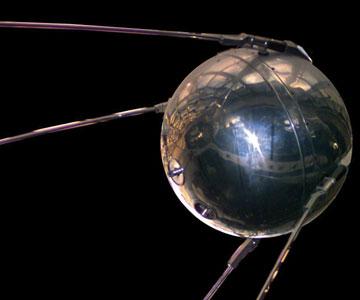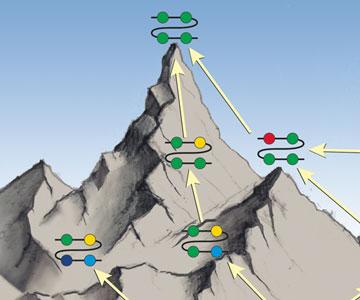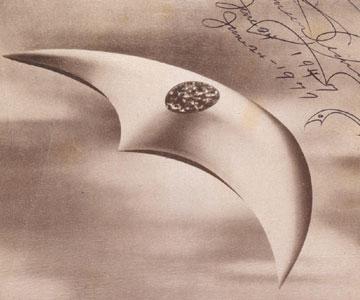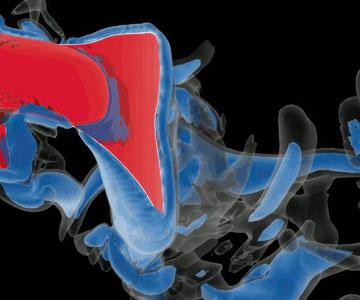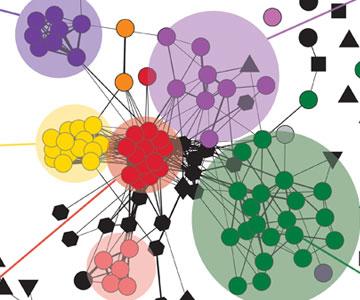Magazine
July-August 2024

July-August 2024
Volume: 112 Number: 4
Swirling eddies around a swimming brine shrimp are captured using what’s called schlieren photography. Schlieren (German for “streaks”) was developed in the late 1800s to image supersonic motion. Here, the setup captures the deflections in a medium (in this case, water) as light passing through it is refracted by the moving fluid. The result is detailed patterns that allow researchers to visualize otherwise transparent flow phenomena. Using these and other imaging techniques, John O. Dabiri and his colleagues were able to image the water movement created by swarms of brine shrimp, and found that the effects of the group are far more extensive than the size of its individual members would suggest. As Dabiri details in “Do Swimming Animals Mix the Ocean?,” models extrapolating from these results indicate that the teeming swarms of life in the ocean may have far more influence on their environment than was previously thought possible. (Image by Isabel Houghton and J. R. Strickler/UWM.)
In This Issue
- Astronomy
- Biology
- Chemistry
- Communications
- Engineering
- Environment
- Ethics
- Evolution
- Medicine
- Physics
- Policy
- Psychology
- Technology
The Emergence of Directed Evolution
Harrison Ngue
Biology Engineering Evolution
Applying Darwinian principles to the molecular world, researchers have learned how to develop useful new versions of enzymes and RNA molecules.
Secrets Beyond the Sparkle
Theodore P. Snow, Don Brownlee
Chemistry Physics
Diamonds contain insights into molecular structures, optics, and Earth’s formation.





